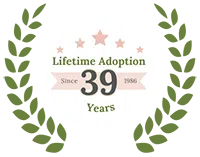How Old Do You Have to Be to Adopt a Baby?
 Age requirements for adoption vary from state to state, and it can become confusing quickly. Many states don’t even set a minimum age to adopt, which sounds flexible but actually makes things more complicated. What works in one state might not fly in another, which is important when the Interstate Compact on the Placement of Children (ICPC) comes into play.
Age requirements for adoption vary from state to state, and it can become confusing quickly. Many states don’t even set a minimum age to adopt, which sounds flexible but actually makes things more complicated. What works in one state might not fly in another, which is important when the Interstate Compact on the Placement of Children (ICPC) comes into play.
The legal age to adopt a baby varies depending on the state and the type of adoption.
What are the age requirements to adopt a baby?
Most states require you to be at least 21 years old to adopt. This makes sense since you need to be mature enough to handle parenting responsibilities. But not all states stick to this rule.
Some states raise it to 25 years old, believing that couples in their mid-twenties are more financially settled and emotionally ready for children.
Many places also have age gap rules, requiring you to be at least 10 to 15 years older than the child you want to adopt, which helps maintain a more normal parent-child relationship.
International adoptions are trickier. Typically, you (or at least one spouse) need to be at least 25 years old for most programs. Plus, you have to follow rules from three different places: the child’s birth country, U.S. immigration services, and your home state. In addition, international adoptions often have age cutoffs that vary by country. Some countries won’t work with parents over 45 or 50, while others are more flexible depending on the child’s needs.
In private adoptions, birth parents select the adoptive family, and some care about age while others don’t. Some birth parents want younger parents who’ll have lots of energy. Others prefer older parents who have more life experience and financial stability.
How old do you have to be to adopt a baby?
For both domestic and international adoptions, the minimum age requirement varies from 21 to 25 years old. The good news? Most adoption agencies don’t have an upper age limit, so you can adopt as long as you’re healthy and stable, even if you’re older.
Private adoption agencies can set their own rules on top of what your state requires. As a result, you might qualify with one agency but not another, even in the same state. Some agencies prefer working with specific age ranges, while others focus on different factors, such as marriage length or parenting experience.
Meeting the age requirement is just the starting line. Agencies want to see that you’re ready for the long-term commitment of raising a child, which involves looking at many different aspects of your life and situation.
Adoption Eligibility Requirements
Adoption involves several requirements designed to make sure children end up in safe, stable homes. Age is just one piece of the puzzle; agencies consider your entire situation to determine if you’re ready to be a parent.
Beyond age, adoption agencies look at several other important areas to make sure you’re ready to be a parent:
- Stable medical and emotional health – You might need a doctor’s note if you have ongoing health issues or are getting mental health treatment. Having these conditions doesn’t automatically disqualify you, but agencies need to know they’re being managed well and won’t interfere with your ability to parent.
- Child abuse clearance – Everyone in your household over 18 has to pass background checks through child protective services. These clearances help make sure children aren’t placed with anyone unsafe.
- Criminal history – Home study providers will run comprehensive background checks. Some crimes (especially those involving violence, child abuse, or domestic violence) will likely disqualify you. However, they also consider when things happened, what you’ve done since then, and how stable your life is now.
- Financial stability – You don’t need to be rich, but you do need to show you can support a child without creating financial stress for your family. They’ll look at your job history, income, debt, and budgeting skills.
- Home environment – The home study process checks whether your home is safe and suitable for a child. Social workers will visit to see your living space, neighborhood, and family dynamics. They want to make sure you have adequate space and that your home is childproofed and secure.
- Adoption and parenting education – Most agencies require training that covers things like attachment, trauma-informed parenting, and how to talk to kids about adoption. If you’re doing transracial or international adoption, you’ll learn about cultural competency, too. This education helps prepare you for the unique aspects of adoptive parenting.
The process might feel overwhelming but remember that these requirements exist to help match children with the right families. Different types of adoption (foster care, private domestic, and international) have their own specific rules, but they all share the same basic goal: ensuring that children receive the love and stability they need.
Get More Info Now
If you live outside of the United States, please click here.

Lifetime Adoption, Inc. is a Licensed Child Placing Agency in Arkansas. (License AR #00050809)
Copyright © | Lifetime Adoption





